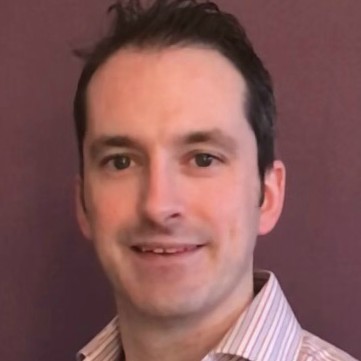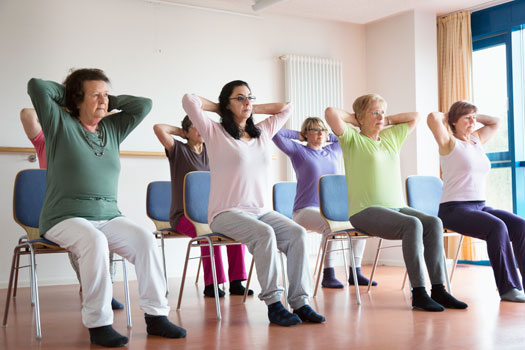
Dr James Higgins explains how his partnership with a local health and fitness provider is enabling patients with long-term conditions to access tailored exercise programmes without having to be directed to services by their GP
The problem
At Brinnington Surgery we recognise the huge benefits being active can have on health, particularly those with chronic illnesses and an ongoing reliance on medication.
Our practice recently signed up with the Physical Activity Referral in Stockport (PARiS) programme, run by a local leisure centre and commissioned by Stockport Council, which provides expert advice and access to gym sessions to help patients manage their health conditions with a reduced reliance on medication.
Sessions vary from low level chair-based activities to walking football and walking netball sessions, which are specifically designed for older adults.
While thrilled to see patients enjoying the benefits of this service, we have seen a huge increase in patients coming in to request a referral, which obviously adds to our GPs’ workloads.
What we did
There are very few people on the planet who shouldn’t be exercising, no matter how old or healthy they are. Whether patients have diabetes, joint pain, COPD or depression, they do not need a doctor’s permission to exercise. However, under the PARiS programme – as with many such ‘exercise on referral’ programmes – GPs were required to ‘rubber stamp’ referrals in order for a patient to be accepted on to the scheme.
In fact, the fitness professionals running the programme are actually best placed to decide what activity is appropriate to the individual’s conditions, ability, age and objectives, so it makes sense for them to be the first port of call. Following discussions between myself and local commissioners, the provider – Life Leisure – has now opened up an avenue for patients to make the referral for themselves, without the need for an appointment at the surgery.
The introduction of self-referrals means patients can enjoy all the benefits of the programme without my input, freeing up valuable appointment time for those who need it more.
How it works
Any residents can self-refer to the service though a ‘triage assessment referral team’ or directly with Life Leisure using an online self-assessment. Applicants who meet the requirements and have been diagnosed with a chronic medical condition then receive a one-to-one consultation with a coach on what kind of exercise is suitable for them based on their fitness and condition.
We are also training our administration team to signpost patients onto schemes like PARiS at the triage stage, and promote self-referral schemes by using in house methods such as the surgery noticeboard.
As well as giving more control to a patient, this also offers an opportunity to break down some potential barriers, especially for people who don’t present to us regularly or who may not want to trouble us with requesting a referral. Also some people may not be keen on seeing a doctor, for example if they are concerned that they are going to get a lecture about giving up smoking or reducing their alcohol consumption.
Of course if a patient presents with issues that raise any questions, the fitness trainer can refer them to me.
Benefits
Out of the total of 2,024 people who signed up for the scheme at Life Leisure since December last year, more than 320 of people have self-referred, accounting for 16% of total referrals.
While we can’t measure exactly how much appointment time this has saved us at our practice, with patients signing up for the scheme from across Stockport and other practices, I am confident it’s a similar proportion of our eligible patients, and that this will increase as more people become aware of the programme and how they can access it.
Overall we know that participants referred to the scheme are achieving significant health gains, with participants increasing their activity levels by more than 85% and reducing their BMI by 850% on average, over 12 months. The scheme also saw mental health scores improve by 5.5 points on average – a clinically significant jump.
Advice to other practices
In an NHS that is becoming more stretched every day, we need to consider services that can take care of this specialist area, so we, as GPs, have more time to do what we specialise in.
There are very few circumstances where someone doing exercise could be harmful, so giving patients the power to make that decision for themselves – away from the GP surgery – is beneficial to both patients and GPs.
Start a conversation with whoever delivers your exercise referral scheme and talk about how they can cut out the middle man and encourage self-referral.
Putting up signs in your waiting room and promoting the scheme at both the surgery and training centre can help encourage people to self-refer, while training your administration team to signpost patients onto schemes like PARiS at the triage stage will help free up GP consultations.
Dr James Higgins is a GP partner at Brinnington Surgery in Stockport
Pulse October survey
Take our July 2025 survey to potentially win £1.000 worth of tokens












